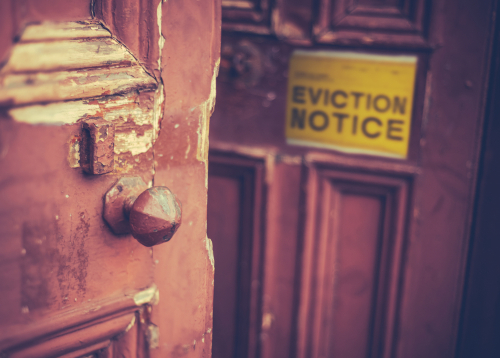Dealing with difficult tenants comes with the territory of property management in Howard County. If you’ve been in the industry a while, you probably have plenty of stories! Unfortunately, it’s unavoidable to some extent. But if you find yourself asking, “how do I deal with difficult tenants?” then you may want to familiarize yourself with the most common difficult tenants and these tips on how to handle them!
Common “Problem Tenant” Types
The Non-Payer/ Later Payer
No landlord likes dealing with this type of problem tenant, but it’s certainly the most common issue. These are the tenants that constantly pay late or whose rent is completely unpaid for long periods of time. Unfortunately, if it happens once, chances are it may become a regular occurrence.
The Lawbreaker
A law-breaking tenant is hard to deal with! This includes but is not limited to tenants that do or sell drugs from the property, throw loud parties that require law enforcement to shut them down or keep unregistered firearms on the property. These are a few scenarios in which a tenant can cause serious concern.
The Arguer
We all know these types of people – the ones who argue about everything, no matter how insignificant the issue. For example, if you ask them to relocate their trash because it’s a property policy, they tell you why the policy is wrong and that there’s nothing wrong with how they operate.
The Careless Tenant
The careless tenant doesn’t take care of your property. The damage it well beyond wear and tear and don’t keep it clean. Generally, when you try to deduct from the security deposit after move-out, this tenant will argue that they deserve it back in full.
The Bad Pet
Pets are tenants too! And, animals can definitely be problem tenants as well. Many pets won’t damage property and are well-behaved, however, there is always that one problem pet. The cat that rips up carpets or the dog that goes to the bathroom in the house. On the worse end of the spectrum, a pet that bites another tenant can cause issues for you as a landlord. If your tenant is taking good care of their pet and following animal control laws, consider reporting them to animal control.
How to Deal with Problem Tenants
Always keep a record… of everything! Always keep emails, records of calls and maintenance fixes, late payments, and so on. That way, if you have to evict a tenant, you have documentation to back you up.
Stick to your policies and procedures Always stick to your guns and don’t waiver on policies. Every tenant will have an argument as to why they deserve leniency. In the end, this can set you up for more problems as they compound. Sticking to the protocols you have in place also helps you treat everyone equally and fairly.
Involve police for criminal tenants or those refusing to move after an eviction notice. If tenants are the lawbreaker problem type, call the police when needed. That way, you have police reports documented when you ask them to leave and/or evict. Calling the police is warranted for violence, noise complaints, rowdy parties, drugs, and any other illegal acts you catch them participating in.
Don’t get personally involved or emotional. Be friendly, but not friends. Being too emotionally invested with tenants can cause them to take advantage of you. It’s also important to avoid letting emotions get the best of you during a confrontational conversation with a tenant. Keep it short, sweet, and professional at all times.
Evict after serious lease-breaking or non-payment 
When the lease has been broken and/or the tenant isn’t paying, evict them! A vacancy is better than a tenant not paying or causing serious property issues and concerns for you or others. Know the eviction process well.
- Step one is to draft a notice including the amount of rent due and a pay-by date. State that they will be evicted if the balance is not paid.
- Serve the notice to the tenant either in person or via posting it on their property in visual space (be sure to photograph and document).
- Take the tenant to court if they don’t pay or move-out. A judge will hear both sides and if you’re granted judgment (which they generally will if adequate proof is given), they will evict the tenant effective immediately.
- Tenant holding over? This means that they’re staying in the unit even after a court order. The next and final step is to call the sheriff to remove them and their property from your rental. Never attempt to self-evict.
Screening Tenants
The screening process can help to minimize the number of problem tenants you have. Have a screening process in place that includes the following:
- Previous landlord reference checks
- Income verification (their monthly income should amount to at least three times the rent)
- A criminal background check
- Prior eviction check
Hire a Property Management Company
At the end of the day, the best advice we have is to hire a Howard County property management company. At Bay Property Management Group, we can assist with all of your property management and leasing needs including eviction processes and mediating tenant issues. The industry is constantly evolving and having a property management team on your side will keep everything on track and hassle-free.
